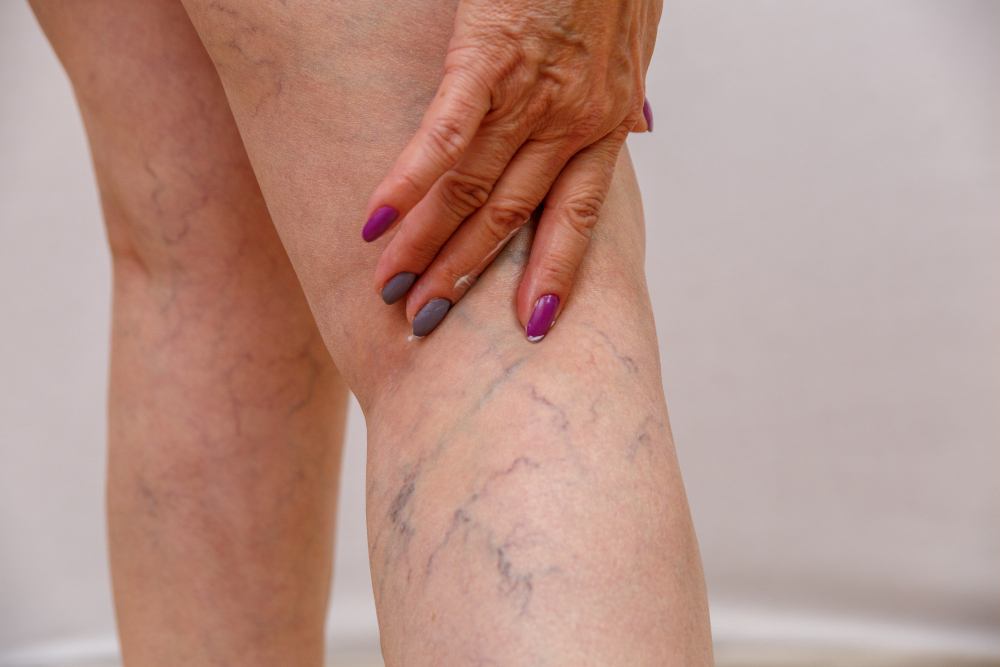Menu
- Home
- Treatments
- Our Providers
- About Us
- Patient Info
- Testimonials
- Locations
- Blog
- Financing
- Contact Us
- Home
- Treatments
- Our Providers
- About Us
- Patient Info
- Testimonials
- Locations
- Blog
- Financing
- Contact Us

Are varicose veins making your legs feel as if they're carrying a heavy burden? While often viewed as a simple cosmetic concern, the truth is that varicose veins can create discomfort and pain or lead to even more serious health issues if left unaddressed. At National Vascular Associates, we provide reliable vascular care for our local patients. Read below to learn more about the root causes of this condition and how to recognize the symptoms so you can become familiar with available treatment options.

Varicose veins emerge when your veins aren't functioning correctly. Veins have valves that should prevent blood from flowing backward. When these valves fail, blood collects in your veins rather than continuing towards your heart. This can happen for many different reasons, including genetic predisposition, obesity, pregnancy, and prolonged standing or sitting, which puts undue pressure on your veins. Hormonal changes, particularly during menopause and pregnancy, can weaken vein walls, worsening the condition. A sedentary lifestyle may also increase the risk as it contributes to poor circulation and vein health.
Recognizing varicose veins early can lead to more effective management and treatment. Symptoms might include veins that are dark blue or purple, veins that appear to be twisted or bulging, aching pain, heaviness, swelling, and even skin ulcers near your ankle. Diagnosis typically involves a physical exam and an ultrasound test to check blood flow and valve function.
Incorporating healthy lifestyle choices plays an important role in managing and preventing varicose veins. Simple adjustments in your normal routine can affect your vein health. Physical activity improves blood circulation and reduces pressure on your veins. Limiting salt intake can also minimize swelling. Integrating these habits into your life can support overall health and possibly reduce the severity of varicose veins.
Treatment for varicose veins has come a long way, with options ranging from lifestyle changes to minimally invasive procedures. Conservative measures include exercise, weight management, elevating your legs, and wearing compression stockings to help keep blood moving through your veins. For those needing more intervention, procedures such as sclerotherapy, laser treatments, and catheter-assisted procedures using radiofrequency or laser energy can close off affected veins. Surgical options, like stripping and ligation, are reserved for the most severe cases.
Treating varicose veins can feel overwhelming, but with the right vascular specialist by your side, you can find lasting relief. At National Vascular Associates, we are committed to providing personalized vascular care, cutting-edge vascular treatment, and a compassionate approach that puts you at the center of everything we do. With the assistance of an experienced vascular specialist, a customized treatment plan can be created that meets your needs and makes sure you feel supported at every step. While varicose veins can be a source of discomfort and concern, our professionals are here to help you find a solution. Contact our office to learn more or to schedule an appointment with a vascular doctor in your community.